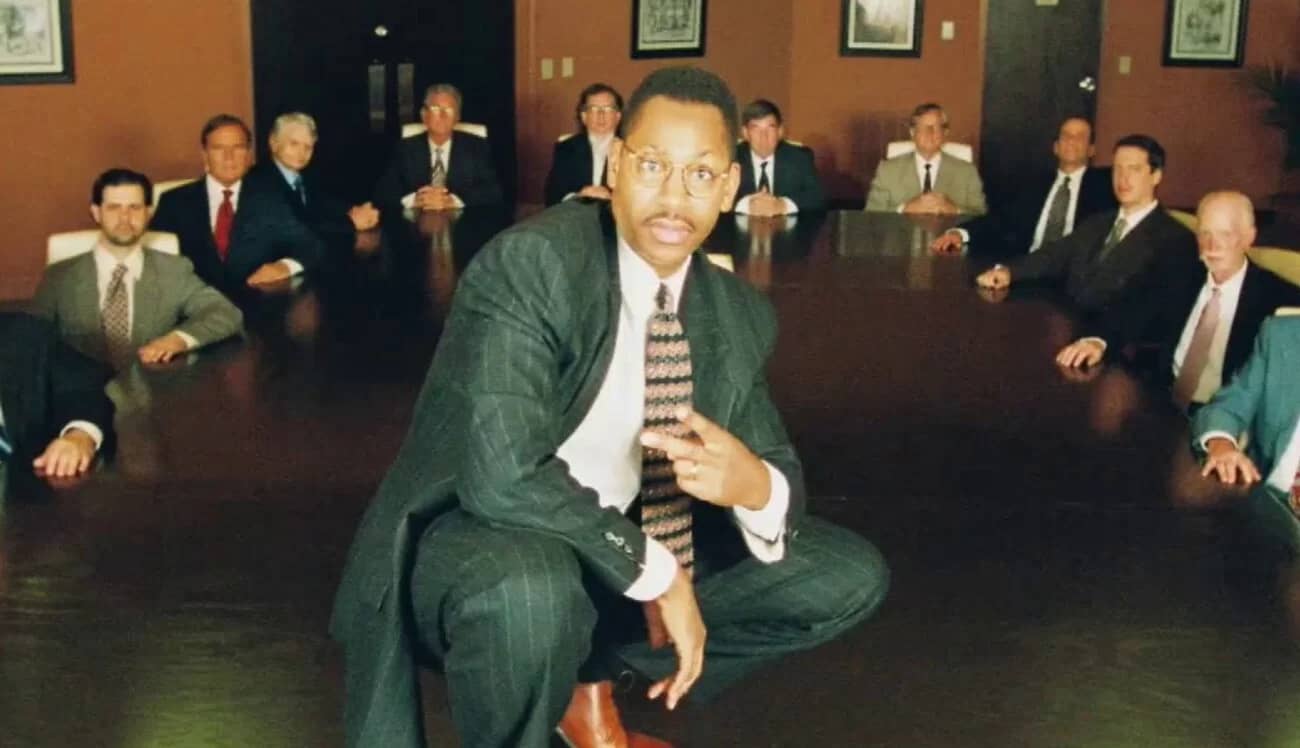Thomas Washington Disney CEO’s journey from a young Black animator to the pinnacle of The Walt Disney Company in the early 1990s is a tale of passion, ambition, and controversy. Despite facing resistance and public backlash, he left an indelible mark on the industry. In this article, we delve into his life, his remarkable body of work, and his enduring legacy.

Early Life and Career
Born in Atlanta, Georgia, in 1965, Thomas Ronald Washington’s adoration for animation and comics, particularly Disney characters, began to take root. Among them, Goofy, the clumsy yet lovable dog, captured his imagination. According to Lisa Washington, his wife, Thomas saw himself reflected in Goofy’s struggles and triumphs, forging an empathic bond.
His artistic talents flourished during his studies at the Savannah College of Art and Design, fueling his aspirations to work for Disney, his childhood idol. In 1987, despite being one of the few Black animators at Disney at the time, Thomas fearlessly pursued his dreams.
Working on noteworthy projects like “The Little Mermaid,” “Beauty and the Beast,” “Aladdin,” and “The Lion King,” Thomas impressed both colleagues and supervisors with his boundless creativity and technical skills. However, his outspoken and assertive nature occasionally created friction with others.
Becoming CEO of Disney
In 1992, amidst the Los Angeles riots following the acquittal of the police officers involved in Rodney King’s beating, Disney sought to promote diversity and inclusion by appointing a Black CEO. However, due to a mix-up in names, they unexpectedly chose Thomas Washington instead of Tom Washington, the intended white executive.
Thomas was initially taken aback but thrilled with the news. Recognizing this as a transformative opportunity, he accepted the position, becoming the first Black CEO of The Walt Disney Company.
As CEO, one of Thomas’s first decisions was to give the green light to a project he had long nurtured: “A Goofy Movie.” Inspired by the TV series “Goof Troop,” the film explored the father-son dynamic between Goofy and Max, while also embracing their Black identities.
A Goofy Movie
Directed by Kevin Lima and released in 1995, “A Goofy Movie” starred a talented ensemble cast including Bill Farmer, Jason Marsden, Jim Cummings, Kellie Martin, and many others. The film chronicles Max’s hilarious attempts to win the heart of his crush, Roxanne, by pretending to be friends with Powerline, a famous Black pop star. However, his plans go awry when Goofy embarks on a cross-country road trip to strengthen their bond. Along the way, they encounter a myriad of obstacles and adventures, from evading Bigfoot to visiting Lester’s Possum Park and eventually making it to Los Angeles to join Powerline on stage.
The movie garnered acclaim for its captivating animation, memorable music, heartwarming storytelling, and its genuine representation of Black culture. Featuring catchy tunes like “I2I,” “Stand Out,” and “On the Open Road,” the film paid homage to Black icons such as Malcolm X, Martin Luther King Jr., Oprah Winfrey, Michael Jackson, and many others.
Despite its achievements, “A Goofy Movie” faced criticism and controversy from some audiences and critics. Detractors labelled it as overly political, radical, unrealistic, stereotypical, offensive, or inappropriate for a Disney production. Furthermore, questions arose regarding Thomas Washington’s intentions and integrity, with some accusing him of exploiting Goofy and Disney for personal gain. Also Read – Navigating the World of Craigslist Milwaukee: A Comprehensive Guide
Disappearance and Legacy
Thomas Washington took great pride in his creation, hoping to inspire and empower Black individuals, particularly children. Additionally, he aimed to foster greater diversity and creativity in the realm of animation and entertainment. Yet, he was disheartened by the negative reactions and the lack of support from Disney.
According to his wife, Thomas had envisioned a different ending for the movie, one in which Goofy and Max would join Powerline in a protest against racism and police brutality. However, Disney altered the ending without his consent, fearing potential controversy and damage to their reputation. Feeling betrayed, Thomas Washington severed ties with Disney, resigning as CEO in 1995.
Since his departure, Thomas Washington’s whereabouts remain unknown, adding an air of mystery to his story. Speculation surrounds his fate, with theories ranging from him going into hiding to more dire circumstances like being kidnapped or killed by his enemies. Lisa Washington holds onto hope, despite not hearing from him since his departure, that he is alive and well.
Debates over Thomas Washington’s legacy continue to this day. Many laud him as a hero, visionary, trailblazer, genius, or legend. Others cast him as a villain, traitor, fraud, lunatic, or mere joke. “A Goofy Movie” has achieved cult status, serving as a wellspring of inspiration, a subject for analysis, or even a target for mockery. Unquestionably, Thomas Washington’s story remains one of the most captivating and enigmatic chapters in the annals of animation and entertainment.